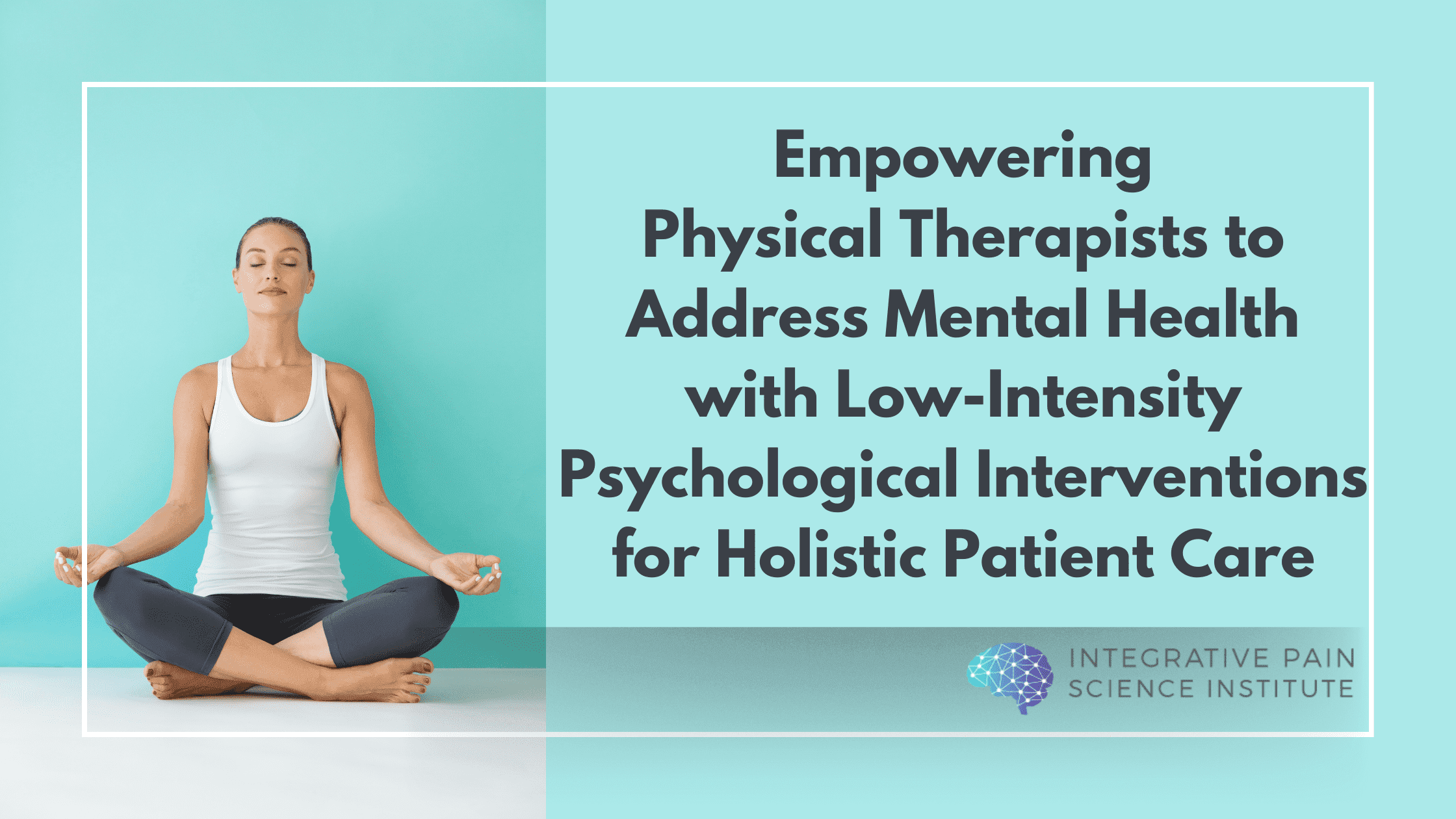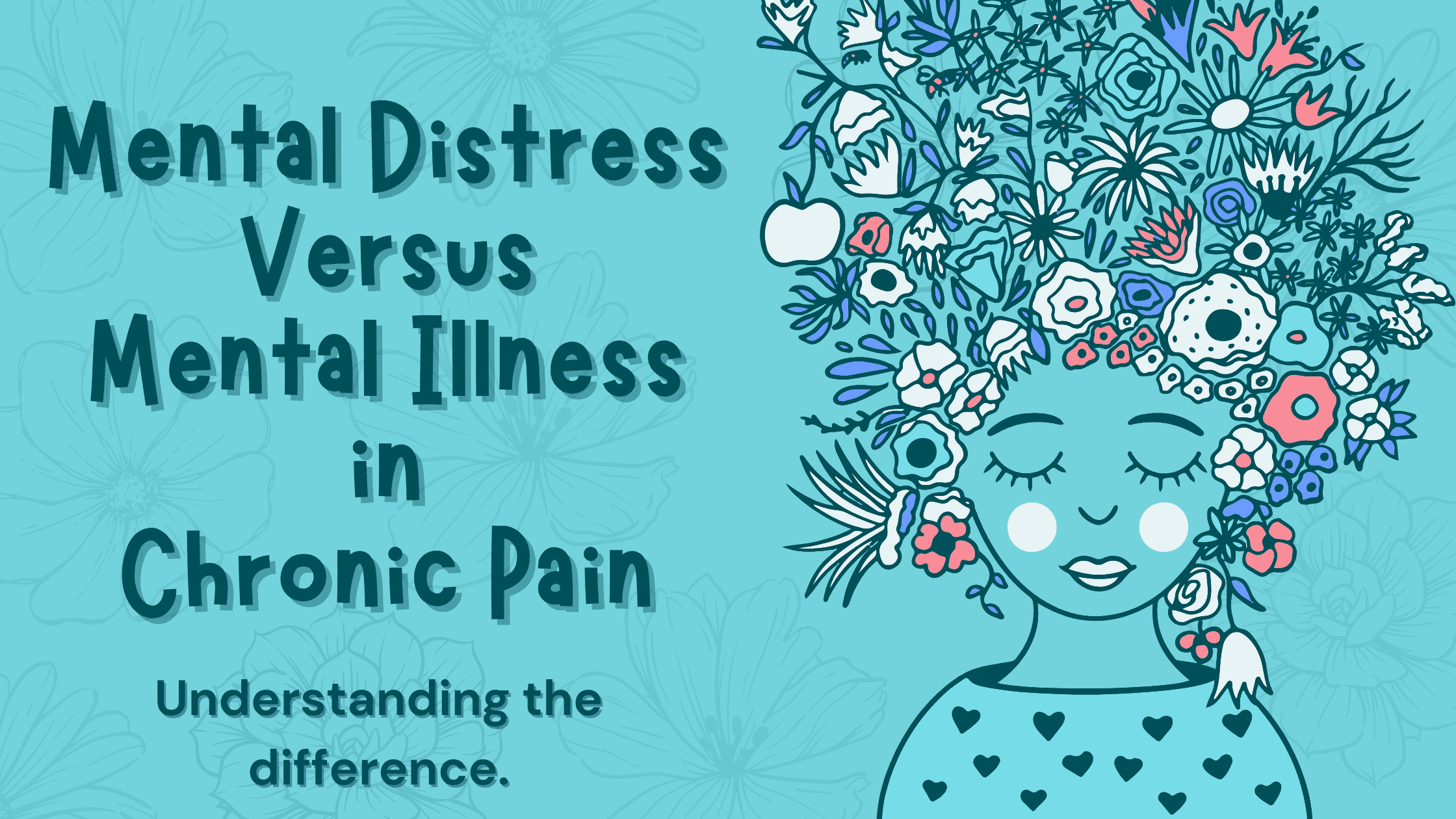For better or for worse, in sickness and in health. When you fell in love and recited your vows did you imagine chronic pain would injure your relationship?
Chronic pain affects 1 in 4 Americans. That means you may know someone who suffers from it. It could be your friend, your parent or your partner. Perhaps they were diagnosed with a chronic condition like fibromyalgia, or their chronic pain is a side effect of an accident or surgery. Your entire relationship has been changed in an instant and your old life seems to have suddenly fallen apart. They may have to quit their job and their old responsibilities and be confined to the couch or to the bed, while you’re left feeling alone and picking up the slack, feeling helpless and upset at your new responsibilities. Now both of you have to deal with this unforeseen burden for the rest of your lives.
How do you support them? How will your relationship survive this?
Before knowing how to support them, you’ll probably struggle with even understanding their condition. Their pain strikes anywhere and anytime, no matter what they do. It stops them from doing even the most mundane task like bending over to put their shoes on.
Worst of all is how you’ve noticed the pain affecting other aspects of their personality. They seem consumed by negative thoughts and emotions, always jumping to the worst possible outcome as they battle with their unseen condition. They may also be diagnosed with clinical depression, anxiety or battle with the side effects of their chronic pain medication or antidepressant. They may become isolated and have trouble reaching out for help from you and other loved ones around them.
But they’re not alone in their struggle and neither are you. Supporting someone with chronic pain is easier than you think; you’ll find you two can even return to some semblance of a normal life. You’d be surprised at how manageable supporting someone with chronic pain is, if you take the right steps.
Effects You Might Notice in Your Loved Ones and Relationship
They Become Isolated
After the trauma of an accident or the shock of being diagnosed with chronic pain, your loved one will likely still be reeling. They don’t know what to do next as their life changes rapidly before their eyes. If they’ve had to quit their job and all the other aspects of their old life, they’ll likely start to feel isolated.
 Your loved one with chronic pain may also suffer from a torrent of negative thoughts and emotions. This is partly because all pain is felt in the nervous system, the same part of the human brain that recognizes emotions and stress. This feeds into the fear of activity as a cause of their pain and will drive them further into isolation. Ultimately, this can drive people with chronic pain into a vicious circle where fear feeds isolation and drives a wedge between them and the outside world.
Your loved one with chronic pain may also suffer from a torrent of negative thoughts and emotions. This is partly because all pain is felt in the nervous system, the same part of the human brain that recognizes emotions and stress. This feeds into the fear of activity as a cause of their pain and will drive them further into isolation. Ultimately, this can drive people with chronic pain into a vicious circle where fear feeds isolation and drives a wedge between them and the outside world.
Because of this isolation, they’ll struggle with the very first step, asking for help. If you feel alone while caring for your loved one in a way you never thought you’d have to, imagine how they feel, alone and disabled in a way that they never expected they would ever be. If you feel helpless watching them suffer, imagine how helpless they feel barely able to put their shoes on without triggering pain.
Side Effects of Painkillers
You may believe painkillers are going to help your loved one in the long run. Finally, they’re no longer suffering from inconvenient pain and they’re going to start healing. But there’s a whole host of side effects from painkillers that will also affect you, and there is recent evidence that painkillers are not the cure everyone thinks they are.
You’ve probably heard a lot of reports about the opioid epidemic that has been sweeping the nation. When painkillers are taken responsibly, it is unlikely your loved one will become addicted to them. But concern over the possibility can be just one more stress for your relationship. You want your loved one to heal properly but you don’t want them becoming addicted to a dangerous drug. When you become exasperated with them you may question why their medication is now your concern.
This flood of opioids is a result of the medical community’s reliance on prescribing them, based on faulty information about their effectiveness. Despite this, your loved one with chronic pain may be happy to be prescribed them and you may be too, at first. It seems that all the trouble is over; they won’t be stopped by simple tasks and you two can finally resume a normal life. But don’t be fooled by the false evidence about painkillers.
Don’t be fooled by the false evidence about painkillers Share on X
Besides addiction, painkillers still come with a series of other side effects that you may find yourself dealing with such as:
- Constipation
- Slowed rate of breathing
- Nausea
- Vomiting
- Drowsiness
- Dizziness
- Weakness
- Dry mouth
- Sexual difficulties
- Confusion
- Difficulty urinating
- Itching
Even if your loved one is responsible and avoids addiction, these relatively benign effects will still affect you. Plans may be canceled due to time spent dealing with constipation; nausea and vomiting will strike at some of the most uncomfortable times. Painkillers’ effects on sexual activity will harm romantic relationships.
Besides a potentially unhealthy addiction, painkillers will still make your loved one dependent.
The human body is naturally conditioned to handle some pain but they’ll no longer be able to handle even the slightest pain and will have to use more and more medication to get the same effect. And you will struggle as well while finding a way to keep your loved one responsible and avoid a potentially harmful painkiller dependency.
There May Be Sexual Side Effects
If your spouse or partner is diagnosed with chronic pain, you may find your romantic relationship severely impacted. Like any activity, your spouse or partner may begin to fear sexual intimacy because it triggers their pain. This has a snowball effect where you two forego sexual intercourse and pretty soon even other forms of intimacy.
For couples where one partner experiences chronic pain and the other does not, sexual activity can be difficult. Painkillers, as well as depression medication often prescribed as a result of chronic pain, can affect both men and women’s sexual desire and abilities. Painkillers can cause erectile dysfunction in men, decreased vaginal lubrication in women and a greatly decreased sex drive in both men and women. Painkillers also cause hormonal dysfunction.
This loss of intimacy not only affects sexuality but can also have a detrimental effect on your relationship as a whole. You or your partner with chronic pain may begin to develop self-esteem issues due to this loss of intimacy. Couples where one has chronic pain begin to avoid even the most basic levels of intimate contact like hand holding, kissing or even simply talking.
Despite all these effects stemming from chronic pain, neither you nor your loved one is helpless in the face of this condition. The solution to patching up your relationships and living a normal, fulfilling life with chronic pain is much easier than most think it is.
Five Solutions to Choose Love Over Pain
Teamwork
The two most important things for you to remember if you have a loved one suffering from chronic pain are that you’re in this together and, to be receptive to their pain, to know that what they’re feeling is real. They shouldn’t have to bear the burden of chronic pain alone and neither should you carry the burden of supporting them alone. Learning about their condition, their treatment options and ways you two can fight chronic pain will ease the burden on both you and your loved one.
Remembering that what your partner is feeling is real is vital. It’s hard for you, as someone without chronic pain, to fully understand your loved one’s condition. You may be skeptical at times, especially when you get exasperated and angry at how it prevents them from the most basic tasks. It’s not all in their head and they’re not complaining too much. They’re also going to be dealing with this for the rest of their life. And it will crop up at uncomfortable times, it will change your relationship (slightly), and they may not be able to do everything they used to.
There are feelings of loss for both of you to work though.
Your love and support is the best medication they can receive and you’ll find, once you two come to an understanding, that your life won’t be that different from what it once was.
Communication
Because of the stigma surrounding chronic pain and the skepticism many feel, your loved one will have difficulty opening up. And you, as their support, will react in a myriad of ways. You may want to just fix them, you may wish you never knew at all or you may just want them to just get through it.
Communication is key in preserving your relationship while your loved one suffers from chronic pain. If they won’t make the first move, then you have to. Establish an open and honest communication between you and your loved one. Ask them what you can do to help, discuss what responsibilities they’re still capable of so that they can contribute to your relationship in a meaningful way. If your spouse suffers from chronic pain they might not be able to cut the grass anymore but they can still help prepare dinner.
Communication is key in preserving your relationship while your loved one suffers from chronic pain. Share on X
Get involved in their treatment and learn about their condition. Once you get into the room with a doctor you’d be surprised with how many questions you have and how easy it is for both of you to live with chronic pain and battle it together.
People who suffer from chronic pain never experience one standard level of pain at a set time of day. Some days are good and they might only have a few aches, but some days they may experience much more severe pain attacks. Establish non-verbal cues that you can look out for to see when your loved one is about to experience pain and how much pain they’re experiencing, as well as how to respond accordingly. If it’s less severe, you can help your loved one to sit down. If it’s more severe, you can take the appropriate actions such as helping them take their medication or even, if necessary, seek emergency medical attention.
Taking such an active role in their life lets your loved one know that they’re not alone with this burden. And you’ll see how you’re not so helpless after all.
Staying Social
Because of the torrent of negative thoughts and emotions plaguing your loved one with chronic pain, they already feel bad. A way to treat both mental and physical health is to maintain a robust social network.
 Chronic pain may force your loved one and yourself to change certain aspects of their life, but it should never stand in the way of your lives together. That’s why many chronic pain specialists encourage those suffering from it to stay active. Moderate, healthy activity and appropriate exercise help lessen the pain associated with chronic conditions, namely fibromyalgia and arthritis. It will also do wonders for their mental state, which is even more important in treating the body’s reception of chronic pain than painkillers. You might not realize how much good a simple night out for dinner or a short walk in the park will do for their recovery.
Chronic pain may force your loved one and yourself to change certain aspects of their life, but it should never stand in the way of your lives together. That’s why many chronic pain specialists encourage those suffering from it to stay active. Moderate, healthy activity and appropriate exercise help lessen the pain associated with chronic conditions, namely fibromyalgia and arthritis. It will also do wonders for their mental state, which is even more important in treating the body’s reception of chronic pain than painkillers. You might not realize how much good a simple night out for dinner or a short walk in the park will do for their recovery.
This requires planning around your loved one’s condition as you decide what activity is appropriate for them. For instance, if your loved one has fibromyalgia then a day at the museum might be too taxing for them, but a shorter trip and perhaps a restful lunch or a movie might be more appropriate. Similarly, you might not be able to hike anymore but shorter walks may be more appropriate as you and your loved one learn the limitations of their condition.
By being active despite chronic pain, you and your loved one can retake your lives and still have a healthy, fulfilling relationship. Suddenly, your old life doesn’t seem so old and their condition doesn’t seem so overwhelming.
Healthy Sexuality
Sex is an important part of any intimate, romantic relationship. Just because your spouse or partner has been diagnosed with chronic pain doesn’t mean you two should be denied sexual intercourse. Like any activity, your loved one with chronic pain may be afraid of sexual intercourse as a trigger for pain. But associating sex with pain will impact your relationship both physically and emotionally.
A lack of intimacy in relationships is extraordinarily detrimental. It can affect both of your feelings of self-esteem. One of you may start to blame the other or simply become emotionally unwilling to be intimate with each other.
The desire to remain sexually active despite chronic pain is something that you and your loved one should speak with a doctor about, if they don’t bring it up first. They may recommend that your loved one keep a pain journal to track the pain they feel throughout the day. This will allow you and your partner, as well as your doctor, to understand exactly what can and cannot be done in bed.
If you decide to consult your doctor on this, some questions you can ask them are:
- How familiar are you treating sexual dysfunction?
- Would you feel comfortable referring me to a specialist?
- What are my options for treating pain as a result of intimacy? (Including medications, cognitive-behavioral, sex therapy, and marital therapy)
Losing the emotional willingness to become intimate or associating pain with intimacy will affect other aspects of your relationship. You two may stop holding hands, kissing, hugging or even simply chatting about the day. If you and your partner find this happening, sit down with a couples’ counselor to deal with these emotional effects.
As with any activity, sex is not out of the question for you and your partner despite chronic pain. It just requires communication and planning. And like healthy exercise, your partner may find that sexual intercourse relaxes and reduces pain due to the flood of endorphins from orgasm.
Professional Help
If your family or friends recognize that you have a problem that needs addressing, its time to pay attention. People outside your marriage can often spot a serious problem before you can. Family members and friends often have intuitive hunches or become concerned about your relationship based on what they observe. And don’t forget your children’s response. Their behavior can often provide a barometer of what is occurring inside your relationship and home. You and your spouse may believe that the current level of interaction and health in your marriage is okay and just the way it will be, but your children may sense that something is wrong and needs to change. Young children often react to marriage problems through abnormal behavior. They begin to act out at school, around friends or even at home. The same is true of teens, who will often react to trouble at home by becoming involved in activities or with people that are out of their normal circle.
This advice to seek out professional help counts double with regard to any suicidal symptoms you or your loved one may be experiencing. If you find yourself thinking seriously about suicide, please make an appointment with a mental health doctor (a psychiatrist, or psychologist) as soon as you can.
A lifetime condition may seem daunting to you and especially more so to your loved one with chronic pain. It may seem like a burden on your relationship, but if you are honest and supportive with them you’ll find that your relationship is strong enough to handle chronic pain.
And that with a little planning and a little teamwork, you and your loved one can live happy, fulfilling lives.
How has pain interrupted your relationship or love life?
How have you been able to maintain love despite the pain and suffering?
Comment below…I’d love to hear how you overcame this obstacle in your relationship.



